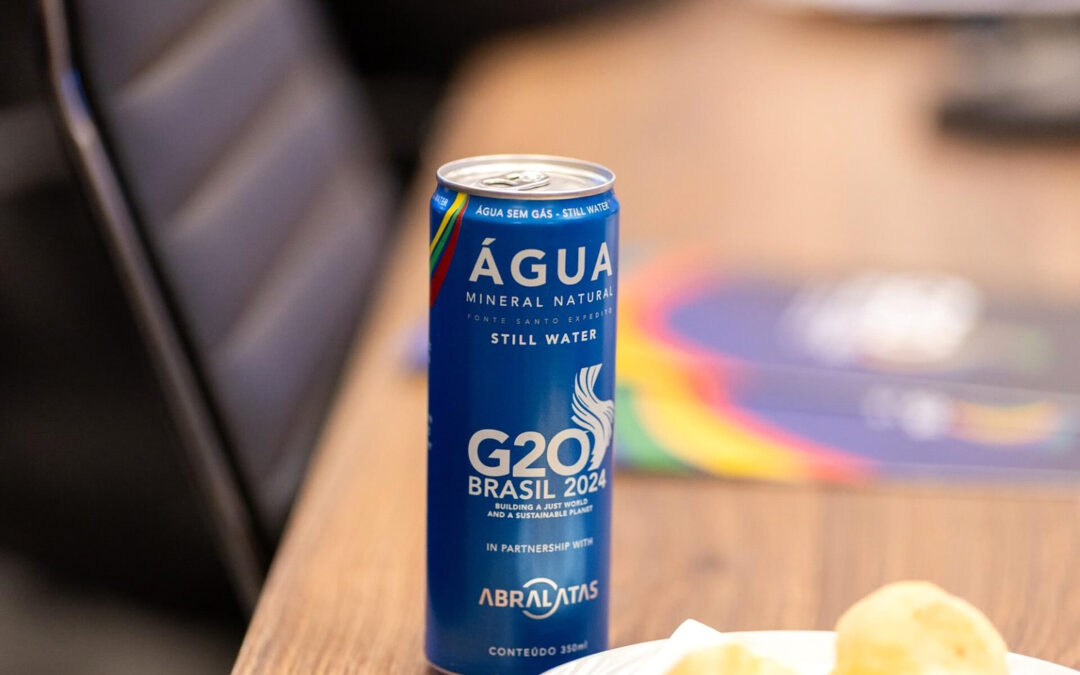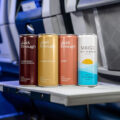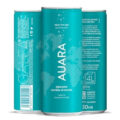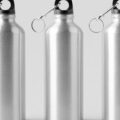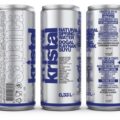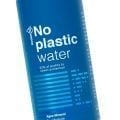Aluminum cans have already replaced plastic bottles in the water supply for participants of the G20 working groups and task forces in Brazil. The initiative stems from a partnership between the Brazilian Ministry of Foreign Affairs (MRE) and the Brazilian Association of Aluminum Can Manufacturers (Abralatas), providing a sustainable solution for water consumption at G20 meetings in the country.
Aluminum containers can be 100% recycled and have the lowest average carbon and water footprint among all beverage containers. 100,000 units of mineral water from Águas de Lindóia, a city in the state of São Paulo, Brazil, will be distributed.
Brazil stands out worldwide in terms of aluminum can recycling, reaching very high rates every year and maintaining an average of over 97% in the last ten years, avoiding the emission of 16 million tons of greenhouse gases. In comparison, European countries recycle an average of 76% of cans, and the United States recycles 60%. In addition, aluminum can recycling saves 5,000 Ghz annually, which is equivalent to 1% of the total energy consumed in Brazil.
According to Carlos Villanova, G20 National Logistics Coordinator, “is another partnership focused on sustainability, fully aligned with the priorities of Brazil’s G20 presidency. Aluminum can packaging is a universal symbol of the circular economy. Its recycling contributes to the generation of jobs and income and, therefore, to the reduction of social inequality, one of the priority themes in the discussions of the G20 Working Groups.”
Cátilo Cândido, president of Abralatas, commented that the initiative sets a positive precedent for canned water to become a more frequent reality at events around the world. “Canned water showed impressive growth in Brazil, achieving a 303% increase in sales between January and June this year compared to the same period last year,” the executive explained. “Seeing canned water gain prominence at an event of the magnitude of the G20 shows that we are on the right track, presenting the aluminum can to the world as a truly conscious option that helps preserve the environment.” he said.
The plastic problem
One of Brazil’s priorities at the G20 this year is the fight against climate change, a topic that has been discussed in the Working Groups and the Global Mobilization Force on Climate Change, as well as in participation groups such as Oceans 20, which highlights the critical issue of plastic pollution in the oceans.
An unprecedented study, coordinated by the Oceanography Institute of the University of São Paulo (USP) and Sea Shepherd Brazil, revealed that 91% of the garbage found on the country’s coast is plastic. With more than 70% of the earth’s surface covered by water, a fairer world and a more sustainable planet cannot be discussed without paying attention to the oceans.
At the ministerial meeting of the Working Group on Environment and Climate Sustainability held in early October, leaders of G20 member countries reaffirmed their commitment to significantly reduce waste generation through circular economy initiatives, including the use of highly recyclable materials such as aluminum. The group recognized the need to mobilize resources and partnerships to support nations in the Global South to properly manage waste and promote resource efficiency.
The document also highlights the urgency of an inclusive and just ecological transition, by creating quality jobs and including informal workers, women, local communities and indigenous peoples in the value chains of the circular economy.

